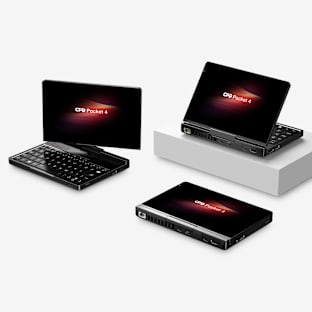![]()
![]()
Plug'n'Play
Everybody wants to jump right into printing and nobody wants to spend half a day setting up a complicated machine. You only need to unbox PLUTO, plug in the power supply and fill the tank with the resin. After you launch 3Deviser the printer will be automatically detected and you are ready to go!
Wireless connectivity
We also dislike unnecessary cables (we had enough of them during developing the first prototypes). PLUTO has a built-in WiFi module and it can connect to your existing network or create it's own. 3Deviser automatically detects every PLUTO connected to the WiFi.
Open Source
We have used a lot of open source and free software during the development of PLUTO and we would like to give back something in return. 3Deviser, PLUTO's firmwares and it's schematics will be published on GitHub.
While PLUTO and it's softwares are quite capable in their current state we think that opening PLUTO up will enable it to do much more than we alone could provide. We believe that everybody should be free to tinker with their 3D printers.
![]()
![]()
![]()
The quality of the printed objects is much higher than anybody could achieve on a standard FDM machine. Take a look at the details that PLUTO is able to create:
For more high resolution photos visit the gallery on our website:
Compact size
We designed PLUTO to be far smaller than regular desktop 3D printers. Its size is only 6.1"x6.1"x11.4" (155x155x290 mm), so you don't need an extra desk to operate it.
Top-Down architecture
![]()
Stereolithography (SLA) printers can be divided into two groups: bottom-up and top-down machines. Most of the printers on the market today use the bottom-up architecture. Unfortunately there is a significant peeling force after every cured layer, making these type of printers slower and less reliable.
These forces act not only on the printed objects but on the vat coating as well, limiting its lifetime.
![]()
By choosing a top-down architecture we eliminated the problems with resin vats failing mid-print while making the overall construction simpler, therefore more reliable. The obvious downside of this approach is that you have to fill the whole tank to a fixed level, regardless of printed object size.
We solved this by filling most of the tank with glycerine, and only adding resin onto the top of it. Glycerine is much denser than resin and won't mix with it, while being completely non toxic and inert. As an added bonus it's water-clear so regardless of the chosen resin's opacity you can see the built object through the glycerine while printing.
Magnetic build platform
![]()
After the print is completed you should be able to easily exctract your printed object. No tools needed, just pop the magnetic build platform out of the machine and you can immediately add a clean one to start a new print.
Handling the printed object together with the build platform makes cleaning and post curing much easier.
German precision - provided by IGUS®
![]()
We wanted to make the Z axis as rigid and compact as possible. By placing it directly into the tank, we made the distance between the build platform and the leadscrew shorter, ensuring precision.
However this design decision came with its own problems. Added lubrication for the components (leadscrew nut, linear bearing) is out of the question, since it could contaminate the resin.
Choosing plastic bearing and nut components, as opposed to metal, was an obvious solution - but during development, we ran into a lot of dead ends. Commonly used plastics are not compatible with stereolithography resins, which results in swelling, distortion and eventually complete mechanical failure.
Here is when igus® came to the rescue. They are the world leader in engineered plastic bearing materials and could supply us with the highest precision leadscrews, nuts, bearings and linear guides. Utilizing their products, we could construct a precise Z axis with utmost reliability.
Modular Tank Design
![]()
The resin tank with the Z axis is designed to be easy to disassemble and clean. You don't need any tools to take it apart into the build platform, the mechanics of the Z axis and the tank itself.
If you would like to go even further, taking the Z axis apart you will only need 2 allen keys (included with PLUTO).
![]()
![]()
PLUTO's PC software is 3Deviser. It was written from the ground up by us and it's source code will be published on GitHub.
Import your models in .stl format and prepare them for printing on PLUTO. You can freely move, rotate and scale the objects and even do advanced processing on them like hollowing them out or automatically generating the necessary support structures for overhangs.
3Deviser automatically detects all the PLUTOs connected to your network and it enables you to manage all of your printers from one computer.
![]()
![]()
Our focused image has 100 micron sized pixels on the surface of the resin, but we are still able to print objects with much smoother surface finishes. They can be compared to objects printed at 25-50 micron resolution.
How do we do it?
The technology is called antialiasing. We can control each pixel individually and accurately, so we are able to project grayscale images instead of using only black&white pixels.
![]()
The object on the left shows how the ring would look like without smoothing, the one on the right shows how the grayscale pixels work. If a pixel hits the resin with 50% intensity the resin hardens to a half-width and half-height voxel attached to the neighbouring full intensity pixel's hardened voxel. In practice this means that we effectively multiplied the achievable resolution both in XY and in Z without using a higher resolution projector.
![]()
![]()
Third party resins
The working principle of PLUTO (top-down printing, no PDMS coated vat) means that it should be compatible with pretty much every material on the market.
If you would like to experiment with different blends from different suppliers, then you can fine-tune the printing settings (such as movement, speed and exposure time) directly from 3Deviser, enabling you to cook up your own recipes for the materials of your choice.
![]()
![]()
People who are...
not satisfied with the capabilities of the traditional FDM printers, but don't have the budget to invest in an expensive SLA machine.
Beginners who are...
looking for their first machine to experience 3D printing.
Jewelers
We offer castable resin which supports traditional investment casting processes by burning out without any residue in the furnace. Since PLUTO is a DLP based printer, the printing time only depends on the height of the object. So you can easily print multiple items with high precision at the same time.
Engineers
It doesn't matter which engineering field you are coming from, stereolithography ensures the highest precision with durable finished parts. It can be an enclosure for a PCB, a designed product housing or a working mechanical component, you can create what you need from a wide range of materials.
Hobbyist / Scale modelers
You only need a small part which you cannot buy separately? Just print it on PLUTO! Or would you like to create custom scale models? Our model making grade material is just the perfect choice for you.
Hackers
PLUTO is designed to be Open Source. Experiment with your wildest ideas and share them with the community!
![]()
![]()
- PLUTO
- 1 pc resin tank
- 1 pc Z motion axis (igus®)
- 1 pc build platform
- Power supply
- USB cable
- User manual
- 2 pcs allen keys
- 250 g resin
- 1 L glycerine
![]()
![]()
![]()
If you are interested in the main stages of PLUTO's development, please read our blog post on the following link:
![]()
![]()
![]()
We are a small, but experienced team of mechanical engineers, electrical engineers, product designers, programmers, but first of all: makers.
5 years ago, we experienced 3D printing for the first time, when we bought our first FDM machine. We tried to utilize the technology to complete a range of different tasks, but we faced the never-ending issues of reliability and inaccuracy. It was at this point that we needed a better solution: We met the concept of stereolithography.
These kind of printers and their operating costs were prohibitively expensive for our budget, so we had to find an another way.
After countless hours of browsing and research, we decided to build our first machines based on SLA technology, back in 2013. Since then we gained a lot of experience in this field, and we built numerous prototypes throughout the years.
In 2015 we felt confident enough to set our goal to develop a market-ready, reliable, precise, but still affordable machine. The journey of PLUTO has begun. And here we are today, we have learned a lot and we are proud what we have achieved in the past years.
PLUTO is ready and is only waiting for mass production.
![]()
During the campaign we will be as transparent as possible. Feel free to ask anything in the comment section, we will answer them as soon as possible.
You can follow our journey on the following channels as well:
![]()
![]()
![]()
![]()
![]()
Risks and challenges
We know that bringing a project to life has big risks and challenges after the campaign is over.
During the development of PLUTO we set the goal that we should only start our Kickstarter campaign when the development is really finished and the product is ready for mass production.
To prove it to ourselves, we fully built 10 pre-production units of PLUTO, enabling us to test and evaluate our supply chain and parts procurement / assembly processes.
We can proudly say that we didn't need to change any major aspect of PLUTO or it's manufacturing processes.
As our engineers and managers have many years of experience in the field of product development and manufacturing, we know that even while we do our best and work hard, a small problem in the supply chain can cause delivery delays.
Therefore we included a 'safety zone' into our timeline to ensure the shipping and distribution of all PLUTOs, on time.
During the campaign we will be as transparent as possible and we will inform you about everything through the comments and campaign updates.

















































































